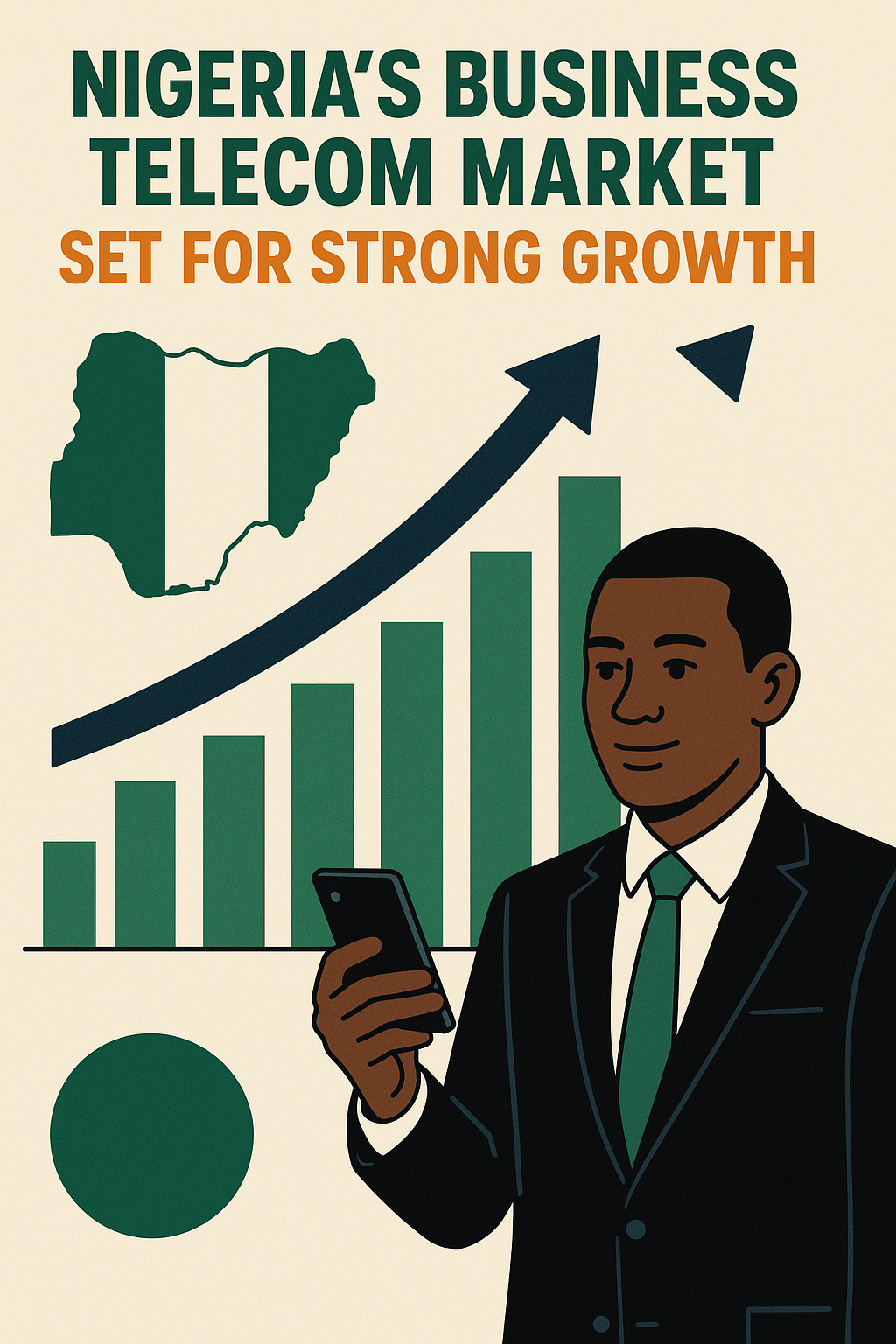Nigeria’s telecommunications industry is entering a dynamic inflection point. As mobile and fixed data services continue to fuel the bulk of operator revenue, a new chapter is unfolding. ICT (Information and Communications Technology) and IoT (Internet of Things) services are emerging as the fastest-growing segments in Nigeria’s telecom landscape between 2022 and 2027.
Data-Driven Revenue Remains the Backbone
Mobile and fixed broadband continue to be the primary revenue engines. As of 2025:
- Nigerians consumed nearly 1,000 petabytes of mobile data by March 2025—an 11.5% increase in just one month, despite a 50% hike in data tariffs.
- Mobile data revenues are projected to reach US$13.4 billion by the end of 2025, with a 6–8% compound annual growth rate (CAGR) expected through 2029.
- The broader communications services market in Nigeria is forecasted to hit US$20 billion in 2025, overwhelmingly driven by mobile connectivity.
These figures confirm that mobile data continues to be the bedrock of telecom profitability.
Fixed Broadband: The Quiet Riser
Fixed broadband is gaining momentum through significant investments in fibre infrastructure and urban connectivity initiatives:
- Fixed broadband revenue is forecasted to grow at an 11.7% CAGR through 2028.
- Nigeria ranks among the fastest-growing fixed broadband markets in the world, with subscriber growth rates of 9.2% annually.
These trends reflect Nigeria’s push to expand digital access beyond mobile-only internet, opening doors for high-bandwidth enterprise and home services.
ICT and IoT: The Fastest-Growing Segments
While mobile and fixed broadband generate the most immediate revenue, ICT and IoT are where future growth lies:
- The ICT sector accounted for 17.7% of Nigeria’s GDP in 2024, with telecom alone contributing 14.4%.
- Nigeria is witnessing the rise of telecom-driven ICT services—such as enterprise cloud, data centres, and managed network solutions.
- Globally, telecom-led cellular IoT (e.g., smart automotive, remote monitoring) is expected to more than double by 2028. Nigeria is following this trajectory with growing deployments in agriculture, energy, and logistics.
The strategic shift toward ICT and IoT is a reflection of Nigeria’s digital transformation goals and the growing demand for connected, data-driven services across all sectors.
Strategic Implications for Stakeholders
The Nigerian telecom sector’s growth signals several priorities for stakeholders:
- Operators must continue investing in both high-capacity mobile networks and fibre infrastructure while building expertise in ICT and IoT verticals.
- Investors should view Nigeria as a high-potential frontier market for digital services and smart infrastructure.
- Government and regulators should prioritize policies that lower barriers for fibre deployment, spectrum access, and enterprise ICT innovation.
Conclusion
Nigeria’s telecom evolution is no longer just about data consumption. While mobile and fixed broadband remain core revenue drivers, the fastest growth is being powered by ICT and IoT services. With strategic investments and policy support, Nigeria can transform from a data-hungry consumer market into a leading digital services hub in Africa.
The next chapter for Nigeria’s telecom industry is not just growth—it’s intelligent, inclusive, and infrastructure-driven progress.


